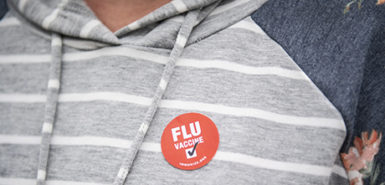
Swiss researchers are working to develop a vaccine that could help alleviate cat allergies in humans.
The twist? The vaccine is given to the cat.
It’s unknown if the treatment will work as proposed, but it’s a fascinating approach to an old problem.
Researchers are essentially using the cat’s immune system to target and reduce a feline protein that affects humans.
HypoPet AG, a Swiss-based company, is the firm trying to develop the vaccine.
“This is an interesting concept,” said Theodore Kelbel, MD, section chief of allergy and immunology at Spectrum Health. “However, there is much to be studied before this will translate to regular practice.”
The vaccine would be administered to cats in three doses over nine weeks, with some cats getting a booster shot six months later, Dr. Kelbel said. The injections would be administered in the cat’s hind legs. It can be given to any cat at any age, but a booster shot may be necessary. Consequently, the effect on the feline protein may not be immediate.
Purr-fect solution?
In theory, humans would benefit because the cats would only need the three shots and a booster.
People who require allergy shots, on the other hand, typically get them on a more continuing basis.
Dr. Kelbel said individuals usually receive weekly shots for a few months, returning to a physician each month for a shot over a three- to five-year period. They also require booster shots if a cat lives in the house.
Allergy shots for humans have been around for decades and they work reasonably well, Dr. Kelbel said.
Researchers have plenty of testing to do on the cat vaccine, Dr. Kelbel said. They need exposure studies in which immunized cats would come into contact with humans who have known allergies to the felines.
They also need to conduct long-term studies, he said.
If a cat is still producing the protein in smaller amounts, it could build up over time and eventually affect humans again.
Other companies continue to research new medications or shots for people, which could improve the currently available treatments. But “the research is still very, very early,” Dr. Kelbel said.
From a common sense standpoint, there remains a leading solution for a person allergic to cats: Avoid contact with the animal.
That is, until researchers fine-tune their vaccine.
“I think it will be a few years, at minimum, before they can tell us (the vaccine) will be clinically beneficial for cat allergy patients,” Dr. Kelbel said.
 /a>
/a>
 /a>
/a>
 /a>
/a>